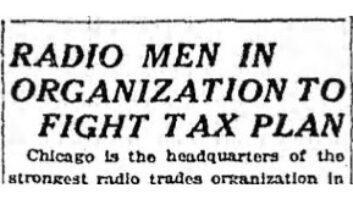
iRobot co-founder and robotics pioneer Colin Angle accepted his award as a Digital Patriot at CTA’s annual honors dinner in Washington, D.C., Tuesday night, April 16, 2024, by raging at EU and U.S. regulators who essentially scotched Amazon’s $1.4 billion acquisition of iRobot earlier this year.
Angle described how for more than two decades, iRobot out-innovated competition not only in industrial and commercial robotics but pioneered the entire robot vacuum category with the Roomba. Then, Angle explained, in 2019, iRobot “began facing a new breed of competitor – the Chinese fast follower – companies subsidized strategically by the Chinese government who invested in innovation, companies able to prosper in their home market, which became effectively closed to us, giving them the opportunity to scale.
“At the same time,” Angle continued, “we faced U.S. imposed tariffs, which threatened to reduce our ability to invest in R&D and tied up needed working capital.”
To help battle government-supported Chinese competitors and “re-establish leadership in the consumer robotic industry by taking it in directions our competition would be challenged to follow,” in 2022 iRobot decided to merge with Amazon, a merger Angle noted would enable Roomba and “the U.S. to maintain its leadership in this critical emerging market.”
By early this year, however, both European and American regulators had signaled they would block the merger, fearing primarily that the e-commerce giant would curb competition in the robot vacuum market by favoring Roomba, forcing the companies in late January to call off the merger. iRobot subsequently laid off 350 employees, 31% of its workforce, and Angle announced he was leaving his own company.
“What happened was a tragedy,” bemoaned Angle. “Perhaps, even more telling, the innovation economy which powers our country’s economic engine, has been significantly damaged.”
Almost pounding the podium, a visibly emotional Angle ended his speech with a warning, “If this country is to lose leadership in technology, at least let us not just give it away!”
Shapiro: Big Isn’t Bad, Regulation Is

CTA chair Gary Shapiro seconded Angle’s anger, accusing regulators in the Biden administration of trying “to tear down some of America’s most successful and innovative tech companies.”
“While companies like Amazon, Apple, Google, and Meta are creating products that Americans love and rely on, leaders in the administration have launched campaigns alleging that ‘big is bad’ and punishing success,” Shapiro declared. “They’ve attempted to stop big companies from buying smaller ones, limiting economic growth, hurting jobs, and slamming the brakes on VC investment in promising startups. That’s bad for ALL companies – big and small.
“And the problem doesn’t stop in Washington,” Shapiro alleged, “or even at our national borders. At the FTC, regulators are working in partnership with foreign governments to launch antitrust suits against American companies. Can you imagine that happening in China? Or in Europe? Or in any of the countries hoping to become the next global leaders in cutting-edge sectors?
“And the terribly sad thing is that it’s working!” Shapiro said. “The threat of legal action is making it harder for American companies to go toe-to-toe with their global competitors.”
Other CTA Honorees

(Image Credit: Stewart Wolpin)
Also honored at the Digital Patriots dinner, which kicks off CTA’s annual Tech Week, was mobile phone executive Denise Gibson, inducted into the CTA Hall of Fame, as well as two members of the House of Representatives, Robin Kelly (D, IL) and Bob Latta (R, OH).
Gibson led the North American technical and commercial teams for Motorola during its mobile phone heyday, then launched Brightstar US and co-founded Ice Mobility. Gibson also has served multiple roles at CTA and serves on the corporate boards of multiple consumer technology companies.
While describing her experiences at former mobile phone leader Motorola in the mid-1990s and early 2000s, Gibson warned that “innovation can create egos, and egos over time can make less than beneficiary decisions, something that all of us need to monitor.” Citing Motorola’s upper management failure to capitalize on new digital wireless technology in the mid-1990s and 2000s, Gibson advised companies not to become too self-satisfied with their success and become self-suppressing as a result.

“We thought we knew everything and totally missed innovation, totally missed technology that would have taken us to a whole new level.” Conflicts with upper management over Motorola’s adoption of new technologies eventually led her to leave the company, eventually acquired by Lenovo, and establish her own successful entrepreneurial path. “Innovation needs to be constant,” Gibson counseled. “It needs to be free to evolve and move forward.”
Both representatives Kelly and Latta were honored for their legislative leadership on consumer technology issues such as solving the digital divide by advocating for wider access to broadband wireless, driverless cars, and especially digital health initiatives, particularly telehealth.
“When COVID started, my late husband is a doctor and I was telling him about telehealth,” Kelly related, “and he’s like, ‘Oh people don’t use that.’ By the end of COVID, he was using it, too.”
Latta related a more dramatic public telehealth change of attitude. “In my district, not long into COVID, at one mental health facility they had 400 hundred telehealth visits,” Latta related. “Only a few months into COVID, they’d done 16,000.”
The dinner also was used to mark the exact 100th birthday of CTA as the Radio Manufacturers Association (RMA) (See “CTA Centennial Part 1: Founding”). The dinner was preceded by video CTA birthday wishes from a variety of members of Congress.












